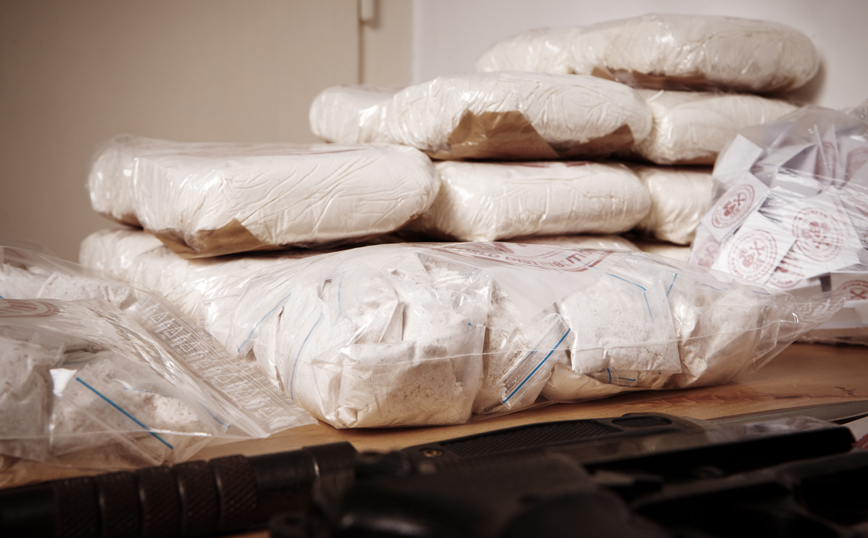
A record was set by Colombia in the production of cocaine. In the annual report of the United Nations Office for Drug Control and Crime Prevention (UNODC), which was made public yesterday, Thursday 20/10, it is underlined that with 2,040,000 hectares of plantations for coca leaf production in 2021, the country with the largest production of cocaine in the world broke its historical record and recorded a “43% increase compared to 2020.
The area is the largest ever recorded since the UN began systematically monitoring coca production in 2001. Colombia is by far the largest producer of coca leaves in the world, followed by Peru and Bolivia.
Along with the production of coca leaves, production also increased cocaine, most of which is destined for the markets of the USA, the country with the largest consumption in the world, and Europe. The quantity produced increased from 1,100 to 1,400 tons.
The United Nations emphasizes that the increase in the area where coca is grown and the production of cocaine is mainly due to the “vulnerability of the place”, the “increase in global demand” and the presence of armed groups that benefit from the trade, reports APE-MPE, citing the AFP.
The regions of Narinio and Putumayo, on the border with Ecuador, are the regions with the highest crop production of 892,660 hectares. Catatumbo, on the border with Venezuela, ranks second, with 425,760 acres.
According to the UN, there was an “upward trend” that “consolidated after 2014” despite intensive efforts to crack down on traffickers drugs.
“End the War on Drugs”
Something invoked as a new argument by President Gustavos Petros, who calls for an end to the “war on drugs”.
Taking power at the beginning of August, already in his first speech he stressed that it is “time for a new international consensus, which will accept that the war on drugs has failed”, and will emphasize a “robust consumption prevention policy” in developed countries. Countries. Something he repeated in September before the high-level United Nations General Assembly in New York, calling for an end to the “senseless war on drugs.”
At the presentation of the report in Bogota, Justice Minister Nestor Osuna said that these numbers “are precisely the technical evidence that is the starting point for the formulation of a new drug policy.”
The Colombian government is still in the process of clarifying its new anti-trafficking strategy, barring the legalization of cocaine, although Mr. Osuna believes that “one day” “trade and trafficking” should be regulated on a global scale.
During his visit in early October, Mr Anthony Blinken the US secretary of state, a traditional ally of Colombia, said he was “on the same wavelength” with President Petros regarding “this more comprehensive approach”.
Colombian president defends coca farmers and promises agrarian reform to boost food production and offer economic advantages to those who abandon illegal crops.
As well as bringing traffickers to justice in exchange for leniency, the new Social Democrat president, the first left-winger in the country’s history, hopes to bring “complete peace” to the country, which has been torn apart by civil strife for more than half a century. The war is fueled by the gold-rich cocaine trade.
Petro’s government has resumed peace talks with the ELN (Army of National Liberation, Gebaristas), officially the last organization continuing the armed struggle in the country, and also wants to hold talks with dissident groups from the former FARC rebel group, which reject the peace deal of 2016.
The president’s popularity is falling
Despite his good intentions, President Petros has seen his popularity slide since taking office two months ago. It is now at 46%, the poll showed, down ten points from a previous survey.
The country’s economic situation, especially unemployment, is the main concern of Colombians as the country is tested by the effects of global inflation and the record depreciation of the currency, the peso, against the dollar USA. Last Wednesday, Mr. Petros attributed this crisis, at least in part, to the US and its economic policy.
Source: News Beast
I’m Robert Neff, a professional writer and editor. I specialize in the entertainment section, providing up-to-date coverage on the latest developments in film, television and music. My work has been featured on World Stock Market and other prominent publications.







